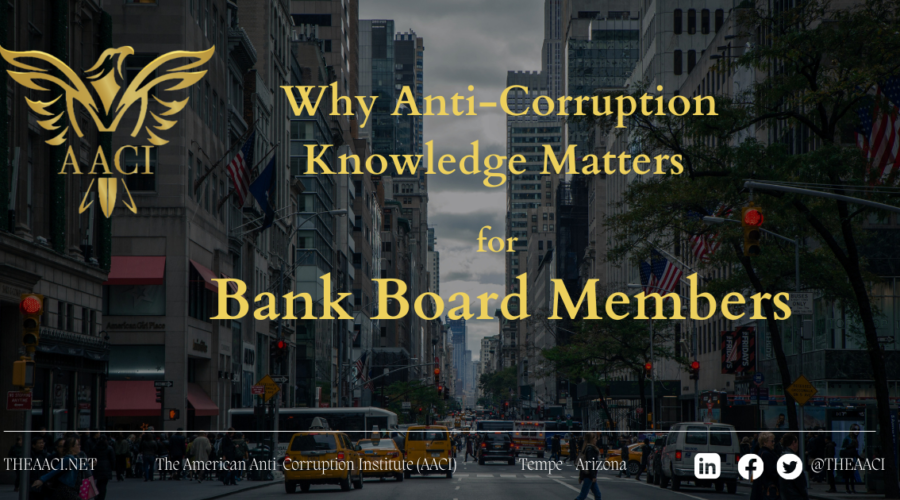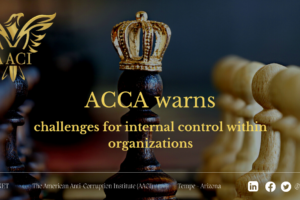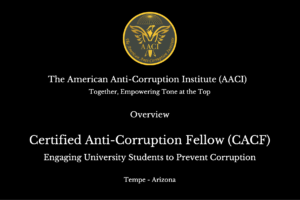Technical Staff
August 7, 2023
The board of directors of a bank must have a basic understanding of fraud, corruption, and internal control to fulfill their oversight duties effectively.
- Fraud refers to deceptive actions taken to gain an unfair advantage, typically resulting in financial loss to the bank. Internal and external parties can commit it, and its detection and prevention are essential to protect the bank’s assets and reputation.
- Corruption: Corruption involves the misuse of entrusted power for personal gain. The AACI defines corruption as “Abuse of power or perceived power or entrusted authority for direct or indirect private monetary or non-monetary gain.”1 It can manifest in various forms, such as bribery, embezzlement, or favoritism, and poses significant risks to the bank’s integrity, reputation, and overall stability.
- Internal Control: “Internal control is a process, effected by an entity’s board of directors, management, and other personnel, designed to provide reasonable assurance regarding the achievement of objectives relating to operations, reporting, and compliance.”2,3. Its measures are implemented to safeguard the bank’s assets, ensure compliance with regulations, and detect and prevent fraud and corruption. These measures include processes, policies, and checks that promote accountability and transparency within the bank’s operations.
The board of directors’ understanding of these concepts is vital because:
- Oversight Duties: Directors ensure the bank’s operations align with legal and ethical standards. Familiarity with fraud and corruption helps them identify potential risks and evaluate the effectiveness of internal control systems.
- Decision Making: Understanding these risks allows directors to make well-informed decisions, allocate resources effectively, and prioritize investments in anti-fraud and anti-corruption initiatives.
- Reputation Protection: Fraud and corruption scandals can damage the bank’s reputation and erode public trust. Knowledgeable directors can take preventive actions to mitigate such risks, safeguarding the bank’s standing in the market.
- Legal Compliance: Directors must comply with relevant anti-corruption laws and regulations. Basic knowledge enables them to adequately oversee and monitor the bank’s compliance efforts.
- Stakeholder Confidence: Demonstrating a commitment to combating fraud and corruption reassures stakeholders, including customers, investors, and regulators, that the bank operates with integrity and ethical standards.
In conclusion, a board of directors’ understanding of fraud, corruption, and internal control is indispensable in fulfilling their oversight duties, protecting the bank’s interests, and maintaining its credibility in the financial industry.
Sources:
1. Exam Unit, “Fraud and Corruption” in Certified Anti-Corruption Manager (CACM) Review Textbook, 2023 ed. (United States of America: The Exam Unit of The American Anti-Corruption Institute LLC., January 12, 2023) p. 196.
2. Exam Unit, “Internal Control” in Certified Anti-Corruption Manager (CACM) Review Textbook, 2023 ed. (United States of America: The Exam Unit of The American Anti-Corruption Institute LLC., January 12, 2023) p. 82.
3. Read more on COSO.org
Photo by Nout Gons: https://www.pexels.com/photo/city-street-photo-378570/











































